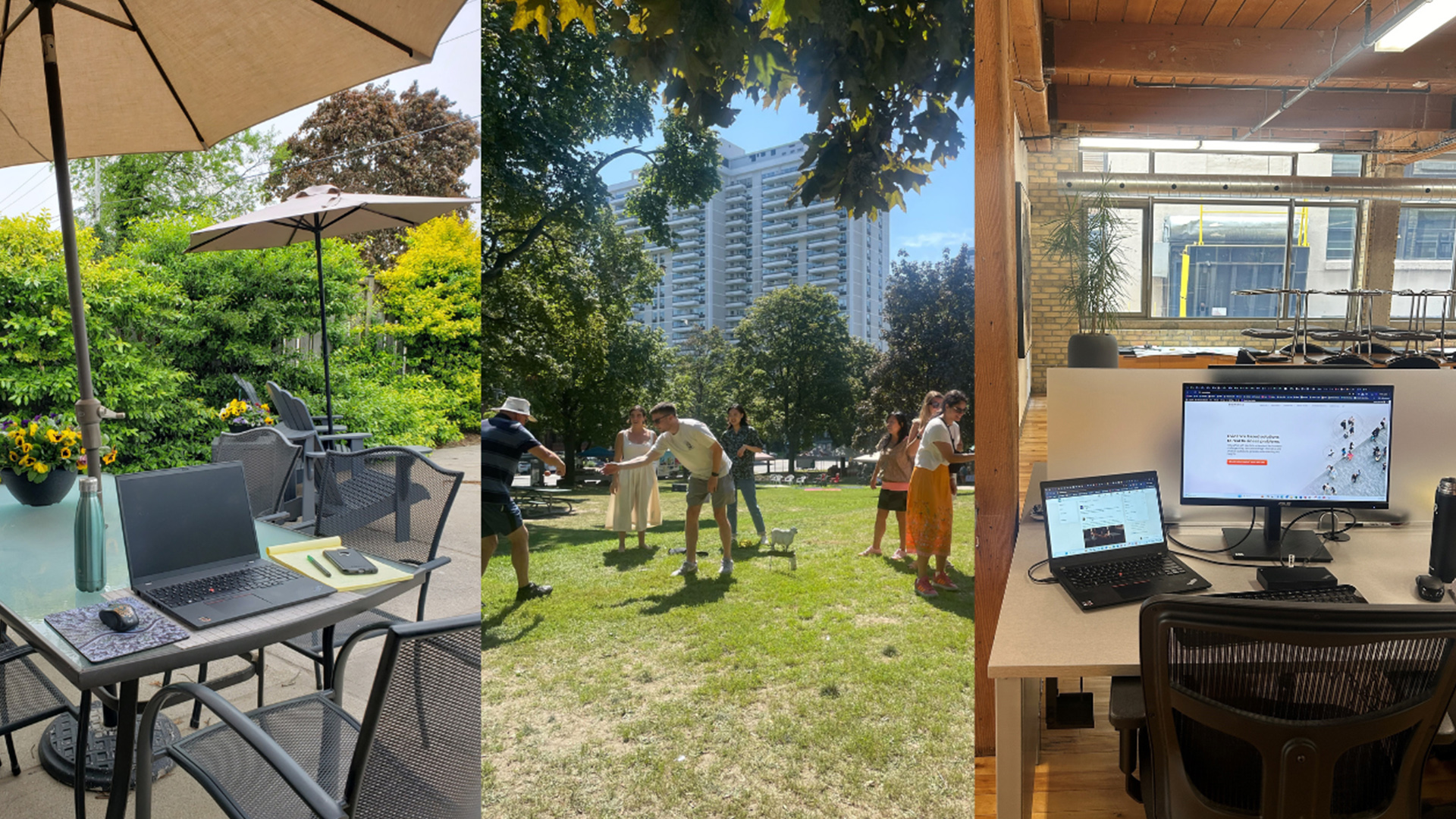The History Of Social Values Research
Section 1: The Theoretical Foundations of Social Values Research
The Environics Social Values measurement system seeks to understand the structure of Social Values in a society and monitor changes in those values over time. The roots of the method go back more than a century and a half to a curious young Frenchman named Alexis de Tocqueville. De Tocqueville visited the United States in the 1830s in order to examine, first-hand, the social and political life of the world’s “first new nation.” His Democracy in America is to Social Values research what Adam Smith’s The Wealth of Nations is to the understanding of economics. Later in the nineteenth century, economist Thorstein Veblen took another giant step forward in the description and understanding of changes to human Social Values with his Theory of the Leisure Class.
A generation ago, academic social scientists such as Maslow, Riesman, Bell, Rokeach, and Thurstone began to describe and measure Social Values, and to explore their dynamics and manifestations in contemporary societies. They also identified a hierarchy of Social Values. For example, Maslow saw a structure and evolution of values from those associated with physical survival at the base level of human needs to those associated with self-actualization at the highest intellectual and moral levels of motivation. Individuals, and even whole societies, could be roughly characterized according to this values hierarchy depending on the beliefs and concerns they displayed most strongly.
In everyday parlance, the term “values” has come to take on a rich panoply of meanings and connotations. Take, for instance, the ubiquitous “family values,” whose precise nature is often assumed without articulation. However, in the 1960s psychologist Milton Rokeach first theorized about and defined Social Values in more precise and scientific terms as having the following properties:
- They are beliefs;
- They are conceptions of, preferences for, and prescriptions about de-sirable modes of conduct or established orientations toward living and existence (in other words, the means of living);
- They are conceptions of, preferences for, and prescriptions about de-sirable end-states of existence and social ideals (in other words, the ends of living).
Examples of the first type of beliefs, the means of living, include such values as honesty, hard work, or even “playing the system.” Examples of the second type, the ends of living, include such values as status, health, peace, enlightenment, and power and influence.
Such formative and fundamental beliefs about the desirable means and ends of human conduct and existence are thought to be largely moulded in adolescence and early adulthood experience. Social Values are informed by a person’s prevalent perceptions and learning provided both in the family and in his or her close kinship group, and by exposure to the predominant socio-historical environment and influences of the times into which he or she is born, is being raised, and comes of age (by which we mean “reaches sentient awareness of the world”). Once massively defined by institutions such as the church and state, values have never been as idealistic or ideological as they were cast in Rokeach’s view, but rather can also serve, quite pragmatically, as a person’s or society’s adaptation to, and justification of, current personal or cultural practices. Those practices—from interpersonal honesty to Machiavellianism, and from social assistance to genocide—are more often than not framed, or even “spun,” in terms of the higher-order values they serve.
In terms of today’s social scientific jargon, at Environics we consider values also to be evidence of “motivated cognition.” These are beliefs that both determine and reflect our responses to the world as we struggle to meet such basic psychological and sociological needs as biological survival, connection with our close kinship groups, and our species’ predilection toward organizing socially in hierarchical and status-defined groups. So, beyond their definition as desirable or prescribed means and ends of living, the term “values” has come to capture the deeper motivations behind human behaviour, tendencies of thought and feelings—unconscious as well as conscious—and the intra- and interpersonal dynamics related to them.
As we peel the onion of human motivation, we see that a host of different aspects of people’s worldviews are well captured by an assessment of their “values,” so defined. These aspects include assumptions, perceptions, and habits of thought; attitudes, judgments, and opinions; and intentions, tendencies, and actions. Values stand in, then, as a good description for a multitude of mental, emotional, and motivational postures with which we conduct our transactions with others and ourselves. What our research really attempts, then, is a rather broadband analysis of the worldviews of individuals and of collectives, big and small.
Section 2: The Evolution of Social Values
For most of history, the pace of change for us humans culturally and technologically, and certainly spiritually, can only be described as glacial. A paradigm shift in worldviews happened rarely (think agriculture, iron, Christ, Galileo, Gutenberg, etc.), and its effects played out over generations of adaptation to the new invention of things or ideas. Not so in today’s rapid world of invention and cultural convergence, where knowledge is discovered so rapidly that it can double within half a single generation. Now, the main mechanism for values change at a societal level is generational replacement. Youth are a constant source of new ideas and beliefs that infuse the culture and become predominant as the values of older generations die with their cohort.
Although they are shaped by the world one experiences in one’s youth, values are not unchanging things set immutably in stone. Rather, they evolve through one’s lifetime, albeit usually slowly. At the psychological level, they change somewhat as a function of a person’s life stage, life challenges, and experience. Which parents among us can deny an uncharacteristic but extreme authoritarian impulse or two when confronting a raging child? Moreover, values can change somewhat in response to major socio-historical events as they occur throughout people’s life spans, for example in reaction to the spread of a technology like the PC or a disease like AIDS, or as the result of insecurity born of a deep recession, the trauma of face-to-face combat in war, or the chilling aftermath of an act of terror.
With the development of democracy and pluralism, and the corresponding decline in unbending institutional regulation of people’s worldviews in many parts of the world, the character of values has changed from one of imposed stability and homogeneity within a culture and across time to one of flux and variability. And with the accelerated pace of change in most aspects of our world, this trend has been further enhanced in our own time.
Section 3: Social Values Methodology
The Social Values assessment methodology we employ, which was first developed in the 1960s by Alain de Vulpian and our French colleagues at his company Cofremca in Paris, was invented in response to a wish to understand the evolution and meaning of the spontaneous rejection of traditional values and institutions evident among many young people in French society at that time. Like their North American colleagues in this enterprise, such as Daniel Yankelovich, the French social scientists took their initial understanding of the societal structuring and evolution of Social Values from extensive qualitative research, primarily in-depth, one-on-one interviews. This research revealed new attitudes toward order, religious and secular authority, success, social status, the role of the sexes, and the place of youth in society, as well as a growing orientation of individuals toward personal autonomy, informality, and immediate gratification.
In the early 1970s, the knowledge gained from this qualitative research was used to create questions and scales designed to measure the diffusion of these new values within the French culture. This was accomplished through annual quantitative surveys of representative samples of the population. Thus was born the study of “socio-cultural currents”—the evolution of Social Values in a culture—and the resulting “Système Cofremca de Suivi des Courants Socio-Culturels” (“3SC”). The system was subsequently extended beyond France into more than twenty countries in Europe and the Americas. On this side of the Atlantic, the polling firm CROP, based in Quebec, imported 3SC to Canada in 1983, and with the help of Environics Research Group and Kaagan Research Associates, into the United States in the 1990s.
Find out how we can help with your organization
Explore our recent Social Values insights






Toronto
366 Adelaide Street West
Suite 101, Toronto, ON
Canada M5V 1R9
416 920 9010
Ottawa
135 Laurier Ave W.
Ottawa, ON
Canada K1P 5J2
613 230 5089
Calgary
421 7th Ave SW
Suite 3000, Calgary, AB
Canada T2P 4K9
403 613 5735
